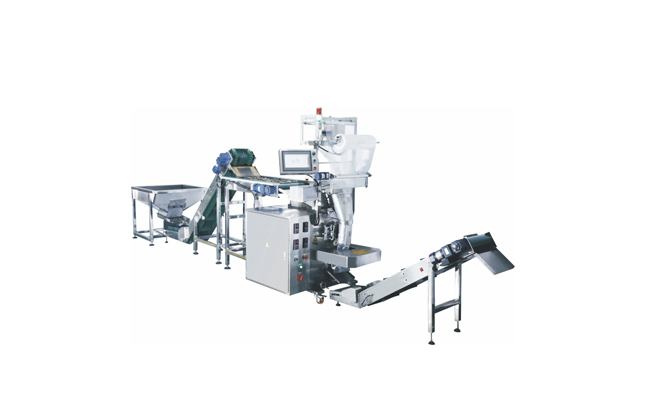
Date | 2023-05-18 01:02:40
Introduction:
In today's rapidly evolving industrial landscape, the role of advanced machinery cannot be overstated. The advent of cutting-edge technologies has revolutionized manufacturing processes, enhancing efficiency, precision, and productivity. In this article, we will delve into the world of advanced machinery and explore its transformative impact on various industries.
The Rise of Automation:
Automation lies at the heart of advanced machinery. From assembly lines to complex production systems, automated machines have drastically reduced human intervention, leading to higher output rates and improved quality control. By automating repetitive tasks, businesses can allocate resources more efficiently and optimize their operations.
Precision Engineering:
One of the key advantages of advanced machinery is its ability to achieve unparalleled precision. With the integration of computer-aided design (CAD) and computer-aided manufacturing (CAM) technologies, machines can execute intricate tasks with exceptional accuracy. This precision enables the creation of complex components and products that were previously unattainable, fueling innovation across industries.
Enhanced Productivity:
Advanced machinery has significantly boosted productivity in manufacturing. These machines can handle large-scale production volumes with minimal downtime and faster turnaround times. With streamlined processes and increased output, businesses can meet market demands more effectively, contributing to their overall growth and competitiveness.
Intelligent Systems:
The integration of artificial intelligence (AI) in advanced machinery has unlocked a new realm of possibilities. AI-powered machines can analyze vast amounts of data in real-time, enabling predictive maintenance, fault detection, and optimization of operational parameters. These intelligent systems ensure proactive maintenance, reducing unplanned downtime and optimizing equipment performance.
Sustainable Solutions:
As industries strive for sustainable practices, advanced machinery plays a crucial role in achieving environmental objectives. Newer machines are designed to optimize energy consumption, minimize waste generation, and reduce carbon emissions. Through innovative engineering and the adoption of greener technologies, manufacturers can contribute to a more sustainable future.
Industry 4.0 and Connectivity:
Advanced machinery forms the backbone of Industry 4.0, the fourth industrial revolution characterized by the integration of cyber-physical systems. With the Internet of Things (IoT) and cloud computing, machines can communicate, share data, and make informed decisions in real-time. This interconnectedness enhances efficiency, facilitates remote monitoring, and enables predictive analytics for optimized operations.
Conclusion:
The advent of advanced machinery has transformed industrial operations, empowering businesses with increased productivity, precision, and sustainability. Through automation, precision engineering, intelligent systems, and connectivity, manufacturers can unlock new levels of efficiency and competitiveness. As technology continues to evolve, the future of advanced machinery promises even greater advancements, propelling industries towards unprecedented growth and innovation.Title: Advancements in Machinery Technology: Unlocking a World of Possibilities
Introduction:
The world of machinery technology is constantly evolving, driving innovation and transforming various industries. In this article, we will explore the latest advancements in machinery technology and the immense potential they hold for revolutionizing industrial operations.
Robotics and Artificial Intelligence:
The integration of robotics and artificial intelligence (AI) has ushered in a new era of intelligent machines. Robots equipped with AI algorithms can perform complex tasks with precision and adaptability. These machines can learn from their environment, make autonomous decisions, and collaborate with human workers, leading to increased productivity and efficiency in manufacturing processes.
Additive Manufacturing:
Additive manufacturing, also known as 3D printing, has gained significant attention in recent years. This revolutionary technology allows the creation of intricate and customized objects by adding layers of material. From rapid prototyping to production-grade parts, additive manufacturing offers faster turnaround times, reduced material waste, and design flexibility, opening up new possibilities across industries.
Internet of Things (IoT) in Machinery:
The Internet of Things (IoT) has made its way into machinery, creating a connected ecosystem of smart devices. Machinery equipped with IoT sensors can collect and analyze real-time data, enabling predictive maintenance, optimizing performance, and improving overall efficiency. This connectivity fosters proactive decision-making, reduces downtime, and enhances operational reliability.
Advanced Sensor Technology:
Sensor technology has witnessed remarkable advancements, enhancing the capabilities of machinery. High-precision sensors can measure temperature, pressure, vibration, and other critical parameters with exceptional accuracy. These sensors enable real-time monitoring, ensuring optimal performance, and facilitating early detection of potential issues, thus minimizing downtime and improving safety.
Machine Learning and Big Data Analytics:
Machine learning algorithms combined with big data analytics have transformed the way machinery operates. By analyzing vast amounts of data, machines can identify patterns, make predictions, and optimize operational processes. This data-driven approach leads to improved efficiency, reduced costs, and enhanced decision-making in industrial settings.
Human-Machine Collaboration:
The future of machinery technology lies in the seamless collaboration between humans and machines. Advanced machinery is designed to augment human capabilities and create a harmonious working environment. Through intuitive user interfaces, ergonomic designs, and collaborative robots (cobots), workers can leverage the strengths of machines while focusing on tasks that require human skills, creativity, and problem-solving abilities.
Conclusion:
As machinery technology continues to evolve, it brings forth a multitude of possibilities for industries worldwide. From robotics and AI to additive manufacturing and IoT, these advancements offer increased efficiency, precision, and collaboration. By harnessing the power of advanced machinery, businesses can optimize their operations, drive innovation, and achieve sustainable growth in the ever-changing industrial landscape.
